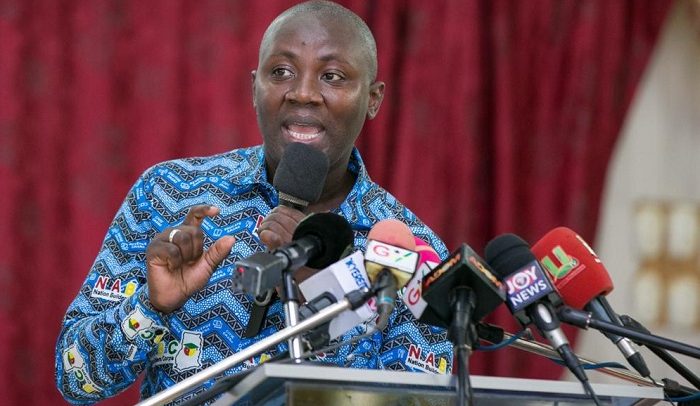Dr. Anyars Ibrahim
CHIEF EXECUTIVE Officer (CEO) of the Nation Builders Corps (NABCO), Dr. Ibrahim Anyars, has announced that about 45 per cent of the trainees working in state institutions are likely to be retained following a successful completion of their training.
According to him, a vast majority of the trainees who are within the state sector including ministries will be given special consideration when job opportunities become available in their respective agencies.
He made this announcement at the launch of the second anniversary of NABCO held on Friday at the Accra Digital Centre where he said plans were underway for the trainees to exit the program “meaningfully” as they entered the third year which was the final phase of the program.
“If you look at our experience in the past 24 months, the vast majority of the NABCO trainees are within the state sector.
“Currently the initiative is to make sure that as we are approaching the 12-month exit stage, close to 45% of them, based on the numbers that we have, should be given an opportunity to exit meaningfully into those paths,” he said.
Touching on the mode of exit of trainees, the NABCO boss explained that the exit part was in three tiers namely retention, where trainees in both the public and private sector get the opportunity to be retained in their respective agencies; and entrepreneurship, where trainees are given the needed support to set up their own businesses.
The last tier is for career furtherance for individuals who wish to further their education in any career of their choice.
He also revealed that under the ‘Enterprise Ghana’ module of the program, about 50 per cent of NABCO trainees working with private agencies would also be given permanent job placements.
This, he said, will affect over 19,000 trainees immediately after the completion of the program.
“If you refer to the arrangements on NABCO, we had a module called ‘Enterprise Ghana’ which has an MoU with every business or agency that entered into partnership with NABCO.
“The MoU stated clearly that by the third year, they (the agencies) were supposed to tell us (NABCO) within the first six months how many trainees they would retain, and the clause specifically stated that they must retain not less than 50% of the total number of trainees sent to them,” he stated.
“This is a well-thought through program or arrangement put in place to make sure that trainees do not have a reversion to their days of unemployment which is the reason the program was created,” he added.
By Nii Adjei Mensahfio


